Wa-pila Hotels: Leadership and Management in Service Sector
VerifiedAdded on 2023/01/23
|7
|489
|62
Presentation
AI Summary
This presentation provides an overview of leadership and management principles within the service industry, using Wa-pila Hotels as a case study. It begins by defining management and leadership, highlighting their roles and differences. The presentation then delves into classical management theories, including administrative and scientific theories, and explores the roles of leaders and managers. It contrasts their approaches, attributes, and aims. The presentation further examines leadership styles and motivation theories, such as Maslow's hierarchy of needs and Herzberg's two-factor theory, relevant for employee productivity. Finally, it concludes by reviewing the discussed theories, emphasizing their application in the service sector and the differences between leaders and managers, and how they impact the success of service-based organizations.
1 out of 7

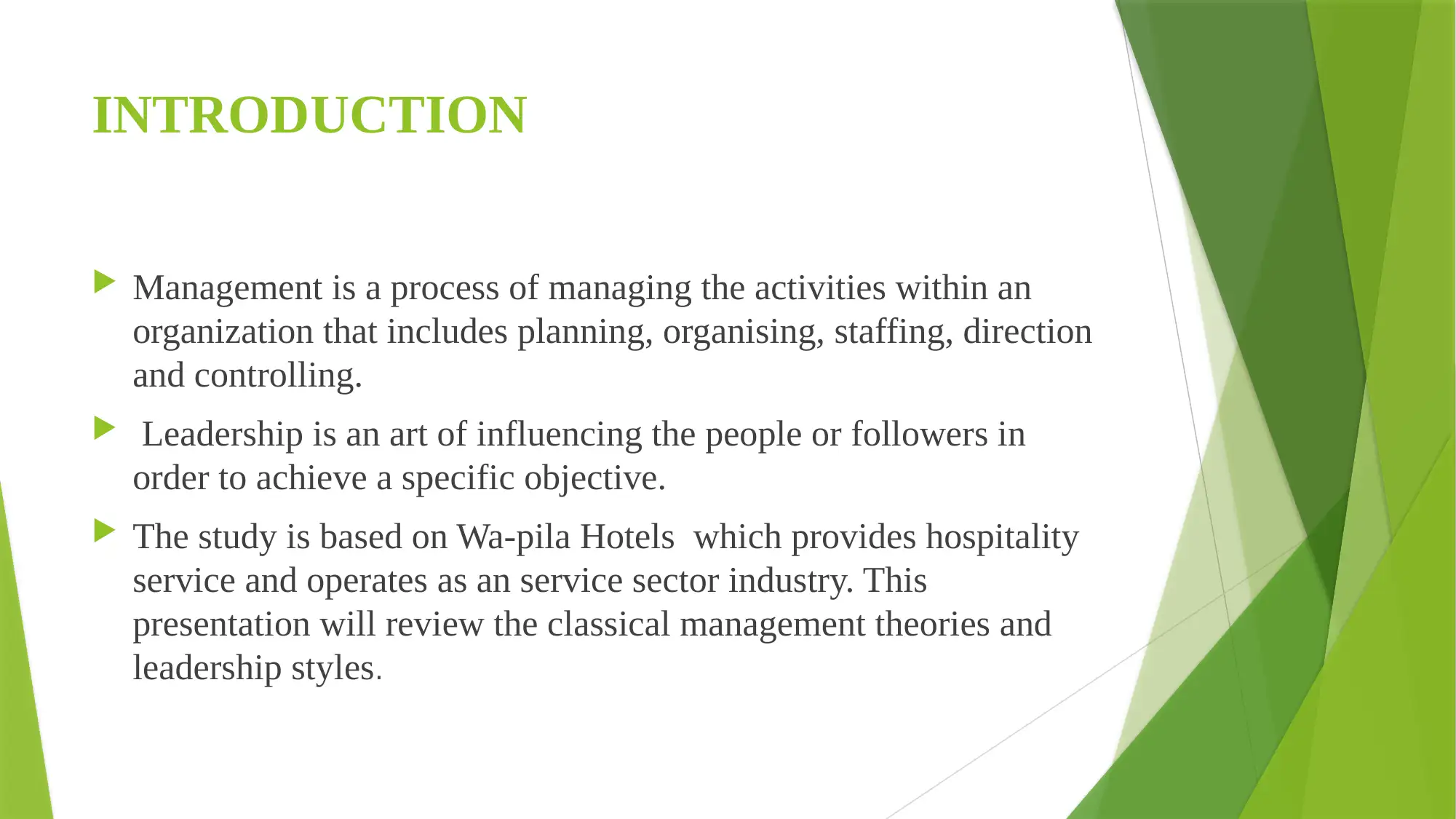
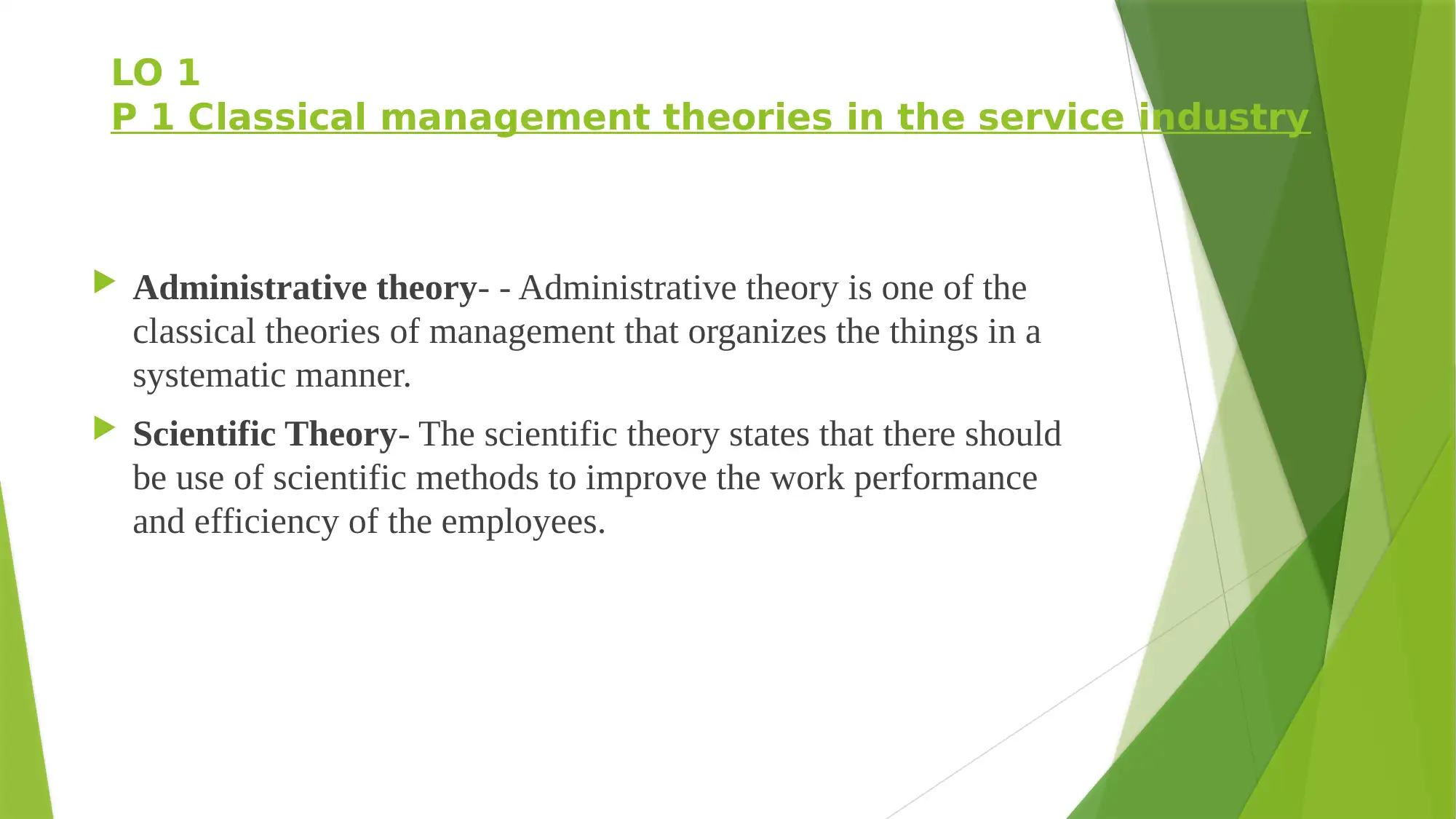

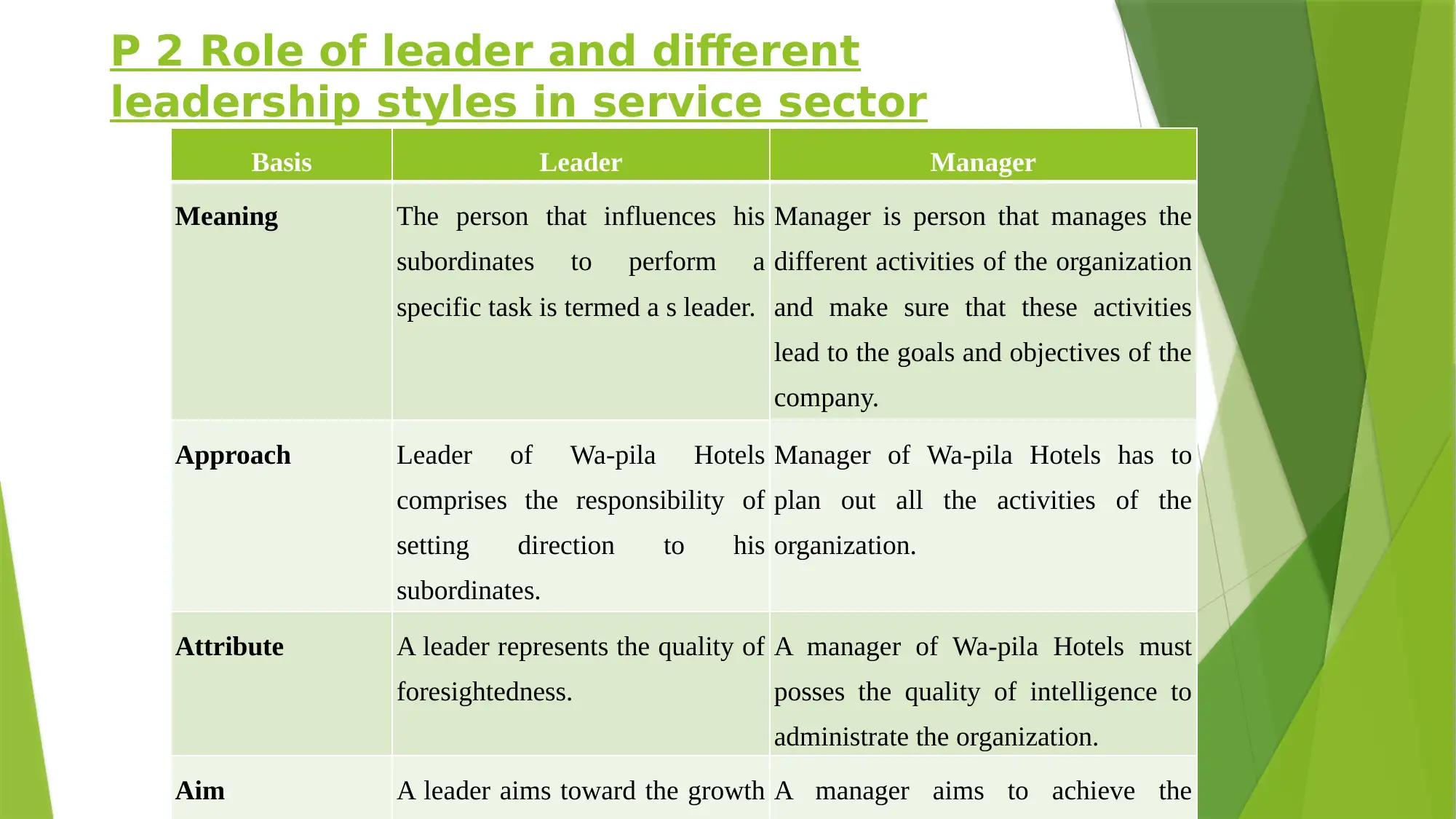
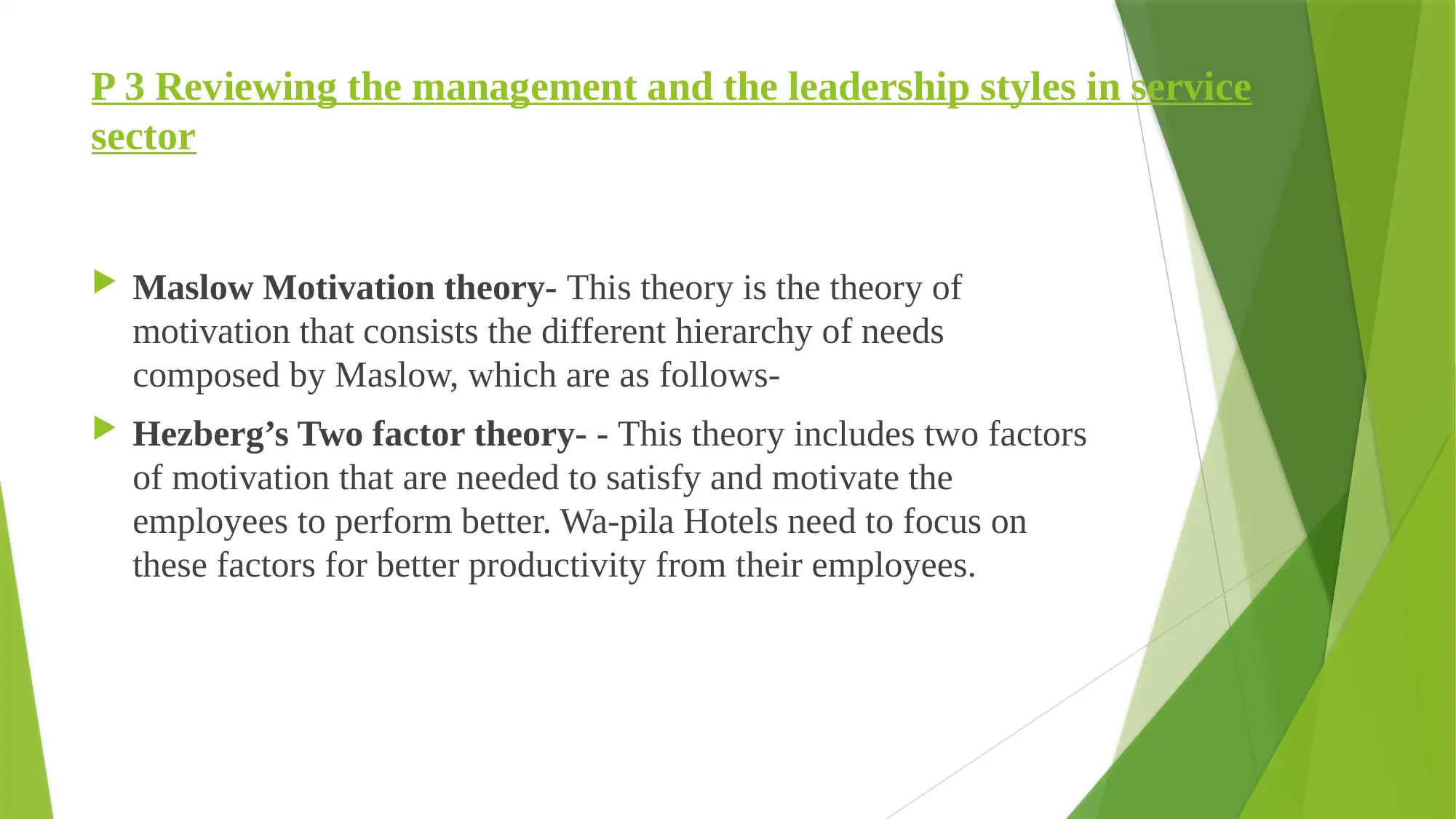
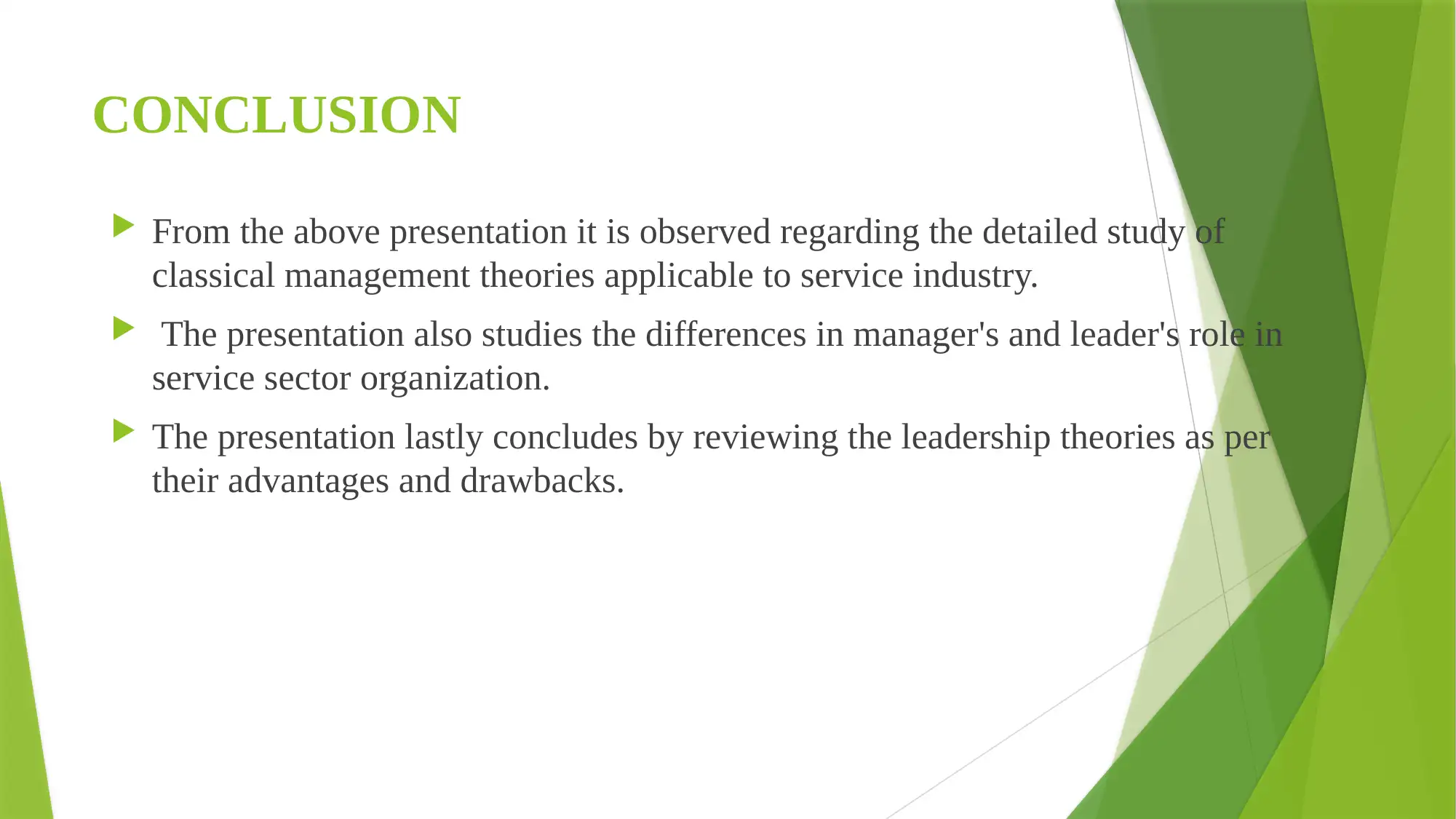







![[object Object]](/_next/static/media/star-bottom.7253800d.svg)